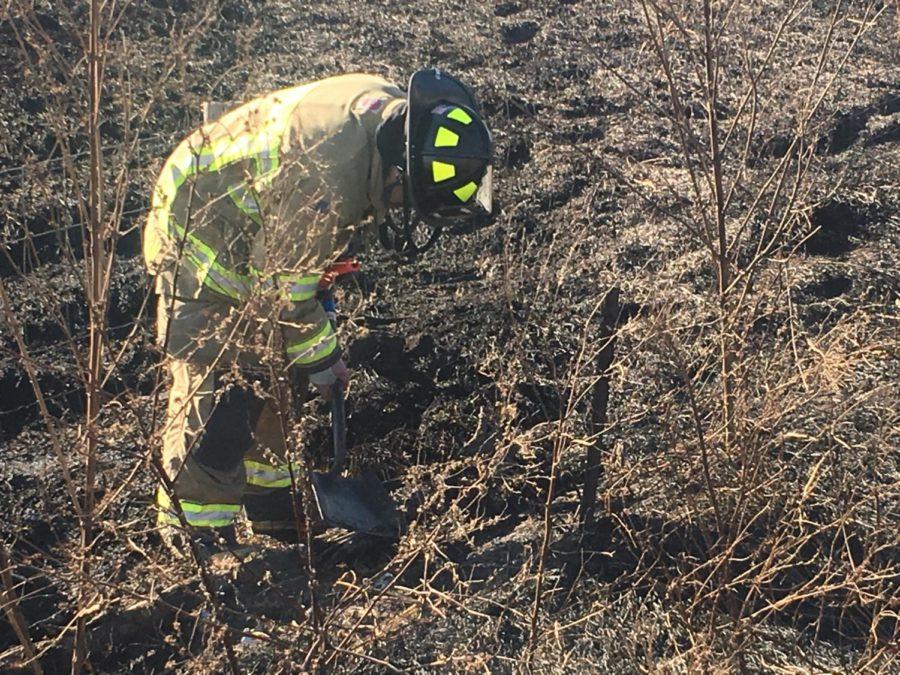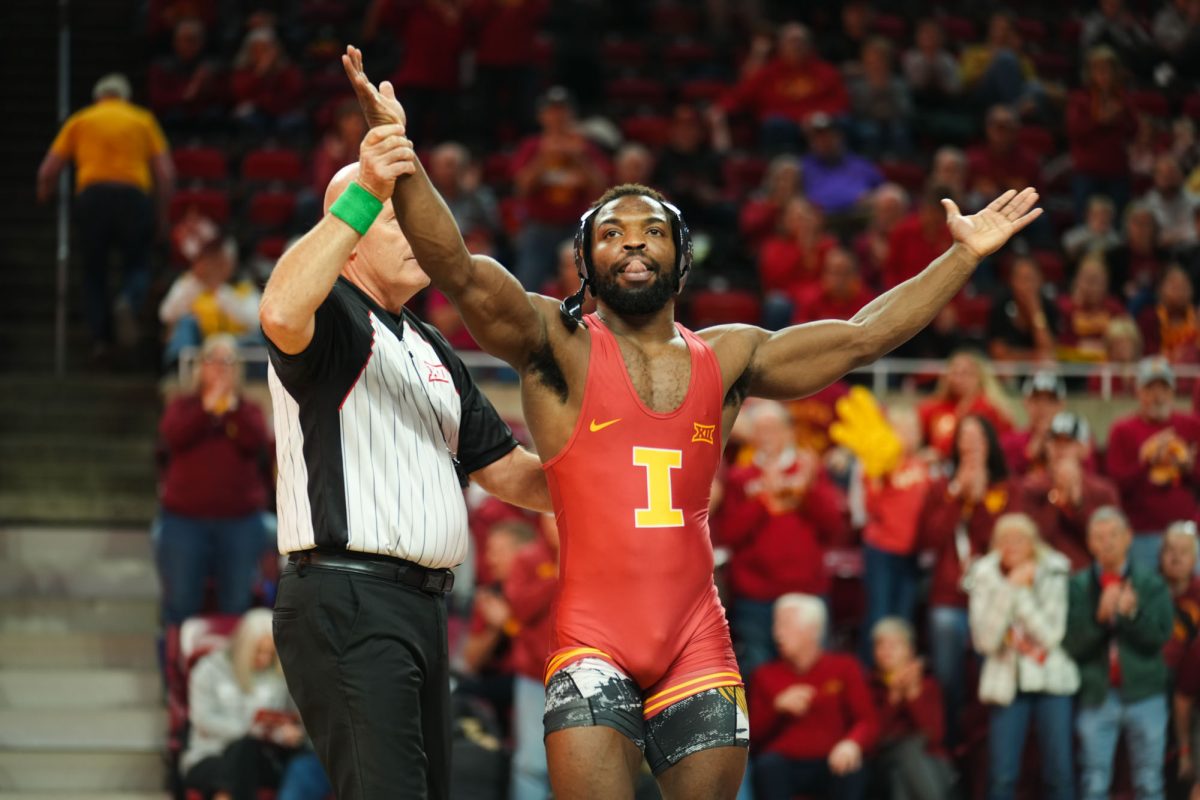Shaw: Traditional masculinity is dangerous
Ames firefighters work to put out a brush fire in a ditch off of Route 30.
May 30, 2018
What does it mean to be a man? Society often defines this for us and it often means more than just identifying as a male human being.
American patriarchal culture has dictated that men must be big, strong and stoic. If a man fails to live up to these expectations, he is seen to be diminished in his manhood.
The role of being a man is made out to be a position of enormous responsibility and authority, commonly associated with being the “breadwinner” or head of the household. There is also inherent prestige in this role; being called a man is much different than being called a boy.
In short, the idea of fulfilling the role of being a man and the expectations which come with it loom over the heads of every boy as they grow older.
A minority are able to consistently fulfill this role, however, there comes a time in people’s lives when they are unable to live up to expectations. Not only do men have to put up with bullying and public shame when they fail to meet societal standards, but they are also forced to internalize their struggles and deal with them independently.
The first two steps in combating mental illness are acknowledging the problem and getting help; however, men often ignore these initial steps because they violate the social construct of masculinity.
This has resulted in a serious mental health crisis. Men are avoiding help when they really need it.
According to the U.S. Centers for Disease Control and Prevention Data & Statistics Fatal Injury Report for 2016, men are 3.53 times more likely to die by suicide than women.
There is also a significant gap between the amount of men and women who seek out care prior to dying from suicide. A 2002 study in the American Journal of Psychiatry on contact with a mental health practitioner titled, “Contact with mental health and primary care providers before suicide: A review of the evidence,” revealed prior to suicide, only 35 percent of men compared to 58 percent of women attempted to get mental care.
Some career paths often support traditionally masculine values. For example, firefighters are seen as heroes who run towards the emergency while others are running away. They must demonstrate strength, courage and perseverance in the face of tragedy.
This expectation that firefighters are supposed to be heroes means they often refuse to seek out help, for fear of being seen as weak or unfit for their job. Yet, many firefighters struggle with very serious mental illnesses, such as depression and post-traumatic stress disorder, at the expense of fulfilling their stressful workload.
The 2017 Ruderman White Paper on Mental Health and Suicide of First Responders revealed that American first responders are actually more likely to die from suicide than in the line of duty.
America needs to work harder to create an environment that doesn’t shame men or the idea of seeking help. Additionally, there is a pressing need to recognize mental health as a serious issue that demands support and care.
It’s time to dismiss societal expectations around traditionally masculine traits and allow people to define for themselves what it means to be a man.







